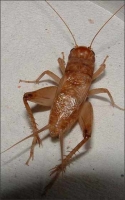xī shuài XI SHUAI
shān yòu shū SHAN YOU SHU
yáng zhī shuǐ YANG ZHI SHUI
jiāo liáo JIAO LIAO
chóumóu CHOU MOU
dì dù DI DU
gāo qiú GAO QIU
bǎo yǔ BAO YU
wú yī WU YI
yòu dì zhī dù YOU DI ZHI DU
gé shēng GE SHENG
cǎi líng CAI LING
| duō shǒu yī yè |
xī shuài
XI SHUAI
唐风
xī shuài zài táng, suì yù qí mò。 jīn wǒ bù lè, rì yuè qí chú。 wú yǐ dà kāng, zhí sī qí jū。 hǎo lè wú huāng, liáng shì qú qú。
xī shuài zài táng, suì yù qí shì。 jīn wǒ bù lè, rì yuè qí mài。 wú yǐ dà kāng, zhí sī qí wài。 hǎo lè wú huāng, liáng shì jué jué。
xī shuài zài táng, yì chē qí xiū。 jīn wǒ bù lè, rì yuè qí tāo。 wú yǐ dà kāng。 zhí sī qí yōu。 hǎo lè wú huāng, liáng shì xiū xiū。
xī shuài zài táng, suì yù qí shì。 jīn wǒ bù lè, rì yuè qí mài。 wú yǐ dà kāng, zhí sī qí wài。 hǎo
xī shuài zài táng, yì chē qí xiū。 jīn wǒ bù lè, rì yuè qí tāo。 wú yǐ dà kāng。 zhí sī qí yōu。 hǎo
yìzhě: James Legge
【wénjí】shī jīng
【zīliàoláiyuán】 The English translation text was taken from The Chinese Classics, vol. 4 by James Legge (1898) and checked against a reprinted edition by Wen Zhi Zhe chu pan she (Taiwan, 1971). Transliteration of Chinese names in the English translation were converted to

